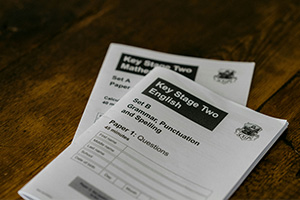Data Engineer Resume: A Comprehensive Guide to Crafting the Perfect CV
A resume is a written form of document enlisting your personal information, work experience, education, skills, and achievements. It is important to showcase your expertise to employers why you're a good fit for a job. In today’s competitive job market, a well-written resume is not only important but the most critical factor in getting a data engineering role. With data engineers playing a crucial part in managing and transforming data within organizations, your resume has to reflect your technical skills, experience, and ability to manage large-scale data projects.
Learn How To Craft A Software Engineer Resume
This guide will help you understand the role of a data engineer and what essential components must be included in a data engineer's resume.
Review Our Extensive List of Free Job Winning Resume Examples For 2024
Understanding the Role of a Data Engineer
It is essential to know what the role of a data engineer entails before one starts writing a resume. Data Engineers basically design, develop, maintain, and optimize data pipelines and architectures. They also collaborate with data scientists and analysts to ensure access to needed data and that it is reliable.
Key Responsibilities
- Designing and maintaining data pipelines that scale.
- Manage and optimize solutions for data storage.
- Implementation of data governance and security protocols.
- Working with cross-functional teams to collect requirements.
Skills Required
- Good knowledge of SQL, Python, and ETL process.
- Experience in big data tools such as Hadoop, Spark, and Kafka.
- Experience or familiarity with any of the cloud platforms, such as AWS, Azure, or Google Cloud.
- Strong problem-solving skills and attention to detail.
Structuring Your Data Engineer Resume
The structure of your resume is very important. It should be written to be readable, logical, and focused on those points that are most relevant to the position being applied for.
Choosing the Right Format
- Reverse chronological: Most suitable for professionals with extensive experience, as it demonstrates your career growth.
- Skills-based: Focuses on skills more than experience; for entry-level candidates or people changing careers.
- Combination: A combination of both formats, best suitable for showcasing both skills and experience.
Crafting an Engaging Professional Summary
This is the first thing a recruiter will see, so make it count. A professional summary must be a briefing of experience and key skills—what describes you as a strong candidate.
What to Include
- Years of experience in data engineering.
- Key technical competencies and tools you are good with.
- A brief mention of your achievements or career highlights.
Example: Data engineer with over 5 years of experience in designing and implementing scalable data pipelines. Good expert in Python, SQL, Hadoop, and cloud solutions, with hands-on experience in AWS. Experienced in teamwork and working with data scientists and business stakeholders to deliver high-impact data solutions.
Highlighting Your Technical Skills
To show your technicalities regarding data engineering, it’s important to highlight your skills clearly and concisely.
Core Technical Skills
- Programming Languages: Java, Python, Scala.
- Data Warehousing: Snowflake, Redshift.
- Big Data Technologies: Spark, Hadoop, Kafka.
- ETL Tools: Talend, Apache Nifi.
- Cloud Platforms: Azure, AWS, Google Cloud.
Presentation Tips
- Use bullet points to enhance readability.
- Group similar skills in categories, for example, Big Data Technologies or Cloud Platforms.
- Add your proficiency level, for example, Advanced or Intermediate.
Showcasing Your Work Experience
The work experience section should be able to showcase the ability to deliver as a Data Engineer. Customize your experience to the description of the job. Focus on achievements and impact.
Customizing Your Experience
- Match your past experience with the job you're applying for, highlighting the relevant tasks and responsibilities.
- Use action verbs and quantify the achievements: "Optimized data pipelines to cut down the processing time by 35%.".
Example Entry: Data Engineer | XYZ Corp | June 2020 – Present
- Developed and maintained data pipelines in Python and Apache Spark, responsible for more than 12TB data processing every day.
- Worked with data scientists on the implementation of machine learning models that improved the predictive analytics accuracy by 25%.
- Migrated on-prem data solutions to AWS to save 30% on operational costs.
Detailing Your Educational Background
Add a section for education and achievements, as it provides the foundation for your technical skills. This may include both academic projects during your studies and relevant degree. Highlight the impact and contribution.
Relevant Degrees
- Bachelor’s or Master’s degree in Computer Science, Information Technology, or a related field.
Certifications
- AWS Certified – Data Analytics
- Google Cloud Professional Data Engineer
- Microsoft Certified: Azure Data Engineer Associate
Emphasizing Projects and Portfolio
Highlight specific projects to demonstrate your hands-on experience. This is very important, especially for people with less formal work experience.
What to Include
- Project description, the role you played, and tools used in the project.
- Results and what you have accomplished.
Example: Real-Time Data Pipeline Project
- Built a Kafka/Spark Streaming real-time data processing pipeline to handle 1 million events per second.
- Improved the efficiency of data ingestion by 40%, giving more time for decision-making in business analytics.
Certifications and Continuous Learning
Continuous learning is essential in the evolving field of data engineering. Continuous certifications and online courses prove interest in keeping aware of industry trends.
Key Certifications
- Certified Data Management Professional (CDMP)
- Cloudera Certified Professional (CCP): Data Engineer
How to Highlight
- Either list certifications as a separate section or under education.
- Mention any courses you have completed related to the job you are applying for, such as from Coursera, edX, and Udemy.
Incorporating Soft Skills and Professional Attributes
While technical skills are highly important, do not forget the soft skills. These can make you really stand out from other applicants.
Essential Soft Skills
- Communication: Develops the ability to communicate difficult technical concepts to non-technical stakeholders.
- Teamwork: Work collaborative with other engineers, data scientists, and business teams.
- Problem-solving: Discovering Innovative solutions to challenges in data.
Weaving Soft Skills into Your Resume
- Include examples of how you’ve used soft skills in your work experience or projects.
Customizing Your Resume for Different Job Applications
Customizing your resume for each application increases its chances of standing out in the process. Carefully read through the description of the job and optimize your resume accordingly.
Customizing for Employers
- Customize your professional summary and skills for the specific role.
- Write your resume using words from the job description to help ensure it will resonate with recruiters.
Optimizing Your Resume for Applicant Tracking Systems (ATS)
Many companies are screening resumes with ATS. Ensuring that your resume is ATS-friendly could make all the difference in getting you in for an interview, or not.
Tips for ATS Optimization
- Use proper, standard headings, like "Experience" and "Education.
- Steer clear of complicated formatting, such as tables and graphics.
- Intermix keywords from the job description into your resume naturally.
Common Mistakes to Avoid in Your Data Engineer Resume
Even a small error in your resume can make a big difference. Avoid these common mistakes:
Top Errors
- Typos and grammatical errors.
- Including irrelevant experiences.
- Overloading the resume with technical jargon.
Proofreading Tips
- Get onto tools like Grammarly to help you find mistakes.
- Let a friend or mentor review your resume.
- Read your resume out loud to check that it doesn't sound too awkward.
Conclusion
Creating an impressive data engineer resume needs attention to detail, a clear structure, and the ability to highlight your skills and experience effectively. Keeping an up-to-date resume, customized to each job application, helps in the best possible presentation at every moment.










